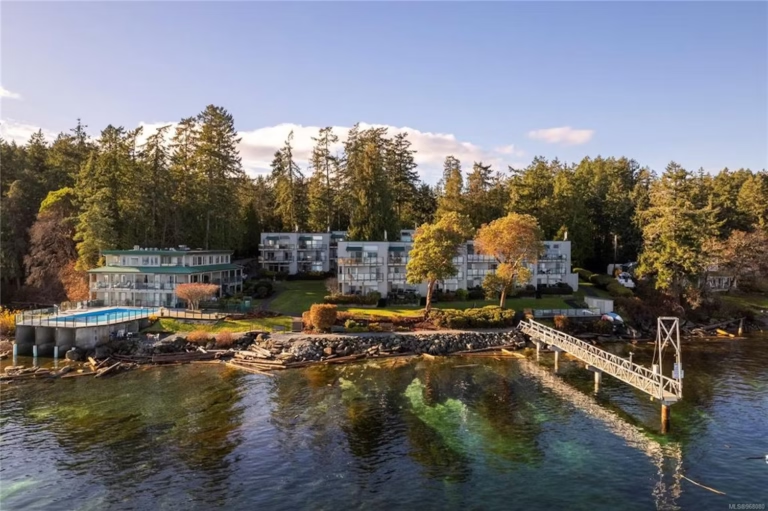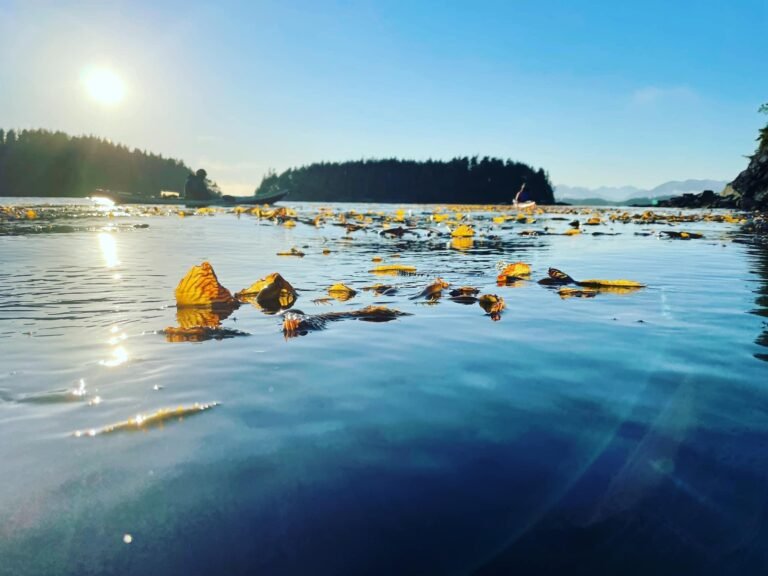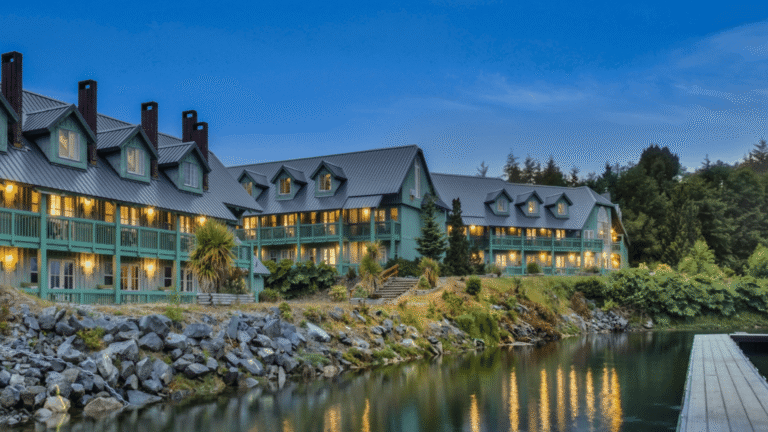The mighty Fraser River flows down the middle of the wide, fertile Fraser Valley, and by the very nature of its broad deep, muddy girth, forces travellers to choose either its north or south side. In the North Fraser Valley, along the Pitt and Fraser Rivers, is the town of Port Coquitlam, the geographical centre of the Lower Mainland.
Port Coquitlam is located on either side of the Lougheed Highway (Highway 7), offering easy westbound access to downtown Vancouver 30 kilometres away – 30 minutes by road or 40 minutes by commuter rail – and easy eastbound access to the rapidly developing Fraser Valley. Almost all of the fertile land in the valley is rural, supporting a blend of farming, forestry and outdoor recreation. Port Coquitlam’s central location and unique setting produces a truly exceptional living and recreational environment.
Port Coquitlam is bounded on the south by the Fraser River, on the east by the Pitt River, on the north by the picturesque Coast Mountains, including Burke and Coquitlam Mountains, and on the west by the Coquitlam River. The difference between the Fraser Estuary and the Fraser Valley is that the mountains are much closer to the towns of Port Coquitlam (also called PoCo) and its neighbour, Coquitlam. Here at the northwestern end of the Fraser Valley a feast of eye-catching peaks rises up on both sides of the little prairie that the dikes protect from seasonal floods. From the lower valley at Port Coquitlam, the mountains climb steeply to elevations in excess of 1,500 metres.
The name Coquitlam comes from the Salish word ‘Kwayhquitlum’, meaning red fish in the river, referring to the river’s annual salmon spawning run. The city was incorporated in 1913, after the Canadian Pacific Railway Company had moved its freight operations from Vancouver to Port Coquitlam two years earlier. Ninety years later, the rail yard is the largest CPR yard in British Columbia.
Population: 55,712
Location: Port Coquitlam is located north of the Lougheed Highway (Highway 7), west of the Pitt River, 19 miles (31 km) east of Vancouver. Neighbouring communities are Coquitlam and Port Moody to the west.
Sports Facilities: Port Coquitlam offers a large number of parks and play areas for people of all ages. Located throughout the city are soccer fields, baseball and softball diamonds, tennis courts, playgrounds, lacrosse boxes and four pools.
The Hyde Creek Centre has something for everyone, including a swimming pool, water park, waterslide, fitness rooms, aerobics studio, squash and racquetball courts, gymnasium, teen centre, childcare facilities, meeting rooms, a pro shop and a restaurant.
The PoCo Recreation Centre offers two ice rinks, playground, a large community room and a teen centre.
Located next to the Recreation Centre is Wilson Centre, offering a wide variety of social and recreational opportunities for senior citizens.
Just minutes away from Port Coquitlam is Coquitlam Centre, one of BC’s largest shopping malls, offering numerous restaurants, malls, grocery stores and many other local services.
There are two boat launch spots for boats on the Pitt River in Port Coquitlam: at the eastern end of Lincoln Avenue, and at the base of the Pitt River Bridge.
Golf: Carnoustie Golf and Raquet Club on Dominion Avenue is graced with beautiful trees and picturesque views of the mountains to the north and east. 18 holes, Par 71, 6,333 yards. Carnoustie is open to the public year round, and facilities include a driving range, practice green, 6 racquetball courts, and 6 squash courts. Golf Vacations in British Columbia.
Port Coquitlam is proud of its unique PoCo Trail which ribbons the western shore of the Pitt River, encompassing most of the city. It’s great for nature walks, hikes, bike riding, horseback riding and wildlife watching. The PoCo Trail offers excellent access to the three rivers that grace Port Coquitlam’s environment: the Fraser, Pitt and Coquitlam Rivers.
Cycling: Similar to dike trails throughout the Fraser Estuary, the PoCo trail provides a broad, level surface on which to cycle. On the PoCo Trail you can easily log 30 miles (50 km) round trip; double that if you tie your ride in with the Alouette River dike trails. There’s not much to see from the road, but as soon as you climb up to the trail you get a panoramic view. Once you get your wheels rolling, lift up your eyes and enjoy the scenery. Motion in the Pitt River sets the pace: log booms line sections of shoreline, while in places such as De Boville Slough, open areas attract anglers. The PoCo trail heads inland for a short distance in order to skirt the slough. North of here the trail becomes rougher as it enters Coquitlam. The slopes of Mount Burke are suddenly much closer at hand. The trail reaches its northern terminus at the foot of Minnekhada Knoll. A wooden picnic gazebo welcomes visitors and provides them with a view of Addington Point and the Pitt-Addington Marsh Wildlife Management Area.
Mountain Biking: If you’re a mountain biker looking for an aerobic workout, head for trails on Burke Mountain in Coquitlam. You’ll be in good gearhead company here. The mountain is a network of old skidder trails and logging roads and some more recent singletrack, including the in-your-face Sawblade, which is comparable to even the nastiest technical riding trails on the North Shore. To find the trailhead, from Highway 7 go north on Coast Meridian Road. Instead of heading for the PoCo trail continue on almost to the end of Coast Meridian and turn right on Harper Road, following the road as it climbs Mount Burke. Park beside a gate next to the Coquitlam Gun Club and begin pumping uphill from here. Follow Woodland Walk Trail on your left. It soon divides, with the beauty-view Coquitlam Lakeview Trail heading off to the right. Both Woodland and the Lakeview trail are crossed in several places by the rough – and renowned – Sawblade Trail. An alternate route is the Galloway Trail. To find it, stay right at all turns as you cycle east from the gun club. Watch for the Galloway trailhead on your right before the road passes beneath some power lines. Although the trail begins with a steep descent, it soon moderates to an intermediate singletrack with a sweet drop to paved Galloway Road. Turn right on Galloway, which leads back to Harper.
Fishing: Some of the best fishing in the Fraser Valley is found on the Upper Pitt River, as attested to by the frequency with which steelhead strike at the barbless lures of fly-fishing anglers. Spring and fall fishing is best, for Dolly Varden and cutthroat trout. Fishing is strictly catch-and-release on the Upper Pitt River. Lakes in the region are scattered in 3 major areas; the crown forest reserve, the Vancouver/Port Coquitlam watershed and Burke Mountain Park. Much of the region is undeveloped, with the lakes being difficult to get to. You would be in for a good hike, which provides a good opportunity for some primitive camping and some wonderful scenery.
Minutes from Port Coquitlam is historic Minnekhada Regional Park in northeast Coquitlam, which has almost 5 miles (8 km) of trails, most of which are of the gentle-walking variety. These trails lead through a wooded area surrounding two large marshes. You can walk the perimeter of the park in two hours, viewing the abundant wildlife and experiencing the moods of the seasons. For those with enough energy, High Knoll Trail will get your heart rate up in a hurry. Although not a long trail, its ascent is steady from the marsh to the viewpoint that overlooks the Pitt and Fraser Rivers and the farm fields.
Along with viewing the beautiful mountains to the North, you can now hike through them in the 38,000-hectare Pinecone Burke Provincial Park, which lies south of Garibaldi Provincial Park, west of Pitt Lake and Pitt River, extending south to Burke Mountain in Coquitlam. This park is a wilderness area that is not regularly serviced or patrolled, and offers day hiking, overnight backpacking, camping, rock climbing, wildlife viewing, winter sporting activities, and much more.
The May Day Festival is held in mid-May to celebrate the arrival of spring. May Day celebrations in Port Coquitlam are an annual family tradition dating back seventy five years. Events include a parade, a carnival, plenty of children’s activities and, of course, the Maypole dance.
Pop in for some Music in the Park, a summer-long series of free outdoor concerts in Lions Park next to the Coquitlam River.
Circle Tours: See the best of the area on a driving Circle Tour. Head north out of Vancouver for the scenic Sunshine Coast and Vancouver Island Circle Tour, or stay on the intensely scenic Sea to Sky Highway, passing through the magical winter resort town of Whistler and Coast Mountains Circle Tour. To explore the rural farmlands and forests of the fertile Fraser Valley, take the Fraser Valley Circle Tour, travelling outbound on the scenic route north of the historic Fraser River, returning westwards along the Trans Canada Highway 1 to Vancouver. Circle Tours in British Columbia.






